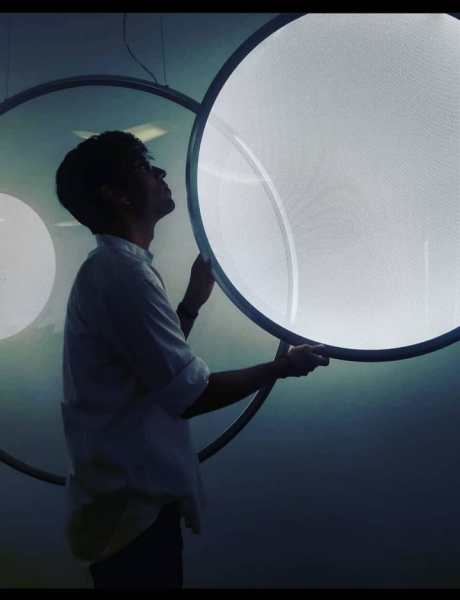Life in a foreign university: ‘Research to internships – pursuing MS in Mechanical Engineering from Italy is a life-changing decision’
(This letter is part of a series by The Indian Express where we bring to you the experiences of students at different foreign universities. From scholarships and loans to food and cultural experiences — students tell us how life is different in those countries and things they are learning other than academics)
Being a small-town boy, I had never dreamt of studying abroad. I thought of following suit like all other students — get good grades in school and college, get a lucrative job and then retire. However, life had its own plan and I ended up pursuing a Master’s degree from Italy and eventually enrolled for a PhD as well. Hello, I am Satyesh Shanker Awasthi and this is my story — from a simple Lucknow boy to a research fellow at Politecnico di Milano, Italy.
It was when I was pursuing graduate studies at the National Institute of Technology, Karnataka that I got exposure to the outside world. I applied for an exchange programme during the intervening summer break of my third and fourth year and went to France. It was a completely new world to me. When I met French students, I was acquainted with their curriculum and the opportunities provided to international students in European nations. Before taking the final decision to apply abroad, I took advice from my seniors and also worked to take stock of the mechanical engineering industry.
I worked at the Research Design and Standards Organisation (RDSO), an Indian railway organisation in Lucknow. After much deliberation, I concluded that pursuing an MS is a better option.
How I got selected for the scholarship
Once I decided to pursue a Master’s and subsequently PhD, I did research regarding the colleges. I applied to Politecnico di Milano as it was among the top 20 universities in my field according to QS world rankings. Moreover, since I had applied for scholarships, my tuition fee was also discounted.
There were three types of scholarship programmes — the ASP, the DSU (University Financial Aid – Diritto Allo Studio Universitario), and Invest your talent. DSU is provided by the Italian government and is valid for any institute. Invest your talent, as the name suggests, search internships for you to invest your talent.
I was offered DSU and ASP– Alta Scuola Politecnica; however, since you cannot have two scholarships simultaneously, I chose ASP. The latter is more of a programme in which a student has to write a letter of motivation to them, telling them their story, how they decided to do a Master’s in the subject, and what are their plans to do further. On the basis of your letter of motivation, you are shortlisted for the interview round.
I am glad that I chose ASP as it requires a lot of involvement from the students. They made us work on projects, learn more about technology and work on gadgets and improve them. It also pays 400 euros per month.
We had a 4×1-week intensive course and related project during the two years of the course. And during each week, we were divided into a team of designers, architects and engineers. Each team had to present a project on the last day based on the work we applied. We worked on a major project with a company/startup/research group on current research topics. I worked with Artemide, a design lighting company in Milan and the topic was ‘light and sensible — city of the future.

 We got to work with some really interesting projects under the ASP programme, says Satyesh. (Image source: Satyesh Shanker Awasthi)
We got to work with some really interesting projects under the ASP programme, says Satyesh. (Image source: Satyesh Shanker Awasthi)
Course more upgraded
Academically speaking, European universities offer advanced education through constant upgradation of the curriculum based on the latest and approved studies. The course is also more advanced. In India, while professors know their subjects well, there is a lack of industry-academia collaboration. In European colleges, in general, there is more application of knowledge as compared to Indian institutes.
The engineering colleges in Italy are well-funded and therefore, students are able to work on advanced research. While my university, Politecnico di Milano is notoriously famous for being more theoretical as compared to other universities in the country, it is way better than most Indian universities.
To manage my finances, I enrolled as a ‘university tutor’ and taught a school student Maths and English. There was a programme called 150 hours where you will get paid for voluntary work at the university.
To unwind, I play badminton. It has always been my passion, it keeps me sane. I can draw analogies between me and badminton. It helps me think better. In badminton, you have to draw strategy and think of the future just like in life.
I fell in love with Italy
When I came to Italy I stayed in an Airbnb for a month. A group of Indians on Facebook was resourceful and helped me in renting a room. As I am a vegetarian, I learned cooking before leaving for Italy. I even found a vegetarian roommate through the Facebook group. I would cook in bulk so that the food would last a day or two.
I fell in love with Italy — its history, culture, and especially food. They have beautiful monuments like in India. The feeling of living far away from home in this new country was indescribable. It has been five years and I still enjoy every bit of it. I miss home but getting all this new experience kept me motivated.
The culture of Italy and India is similar; people are family-oriented. In the beginning, I did not interact with the locals and my social circle mostly involved students and faculty from the university. Most Chinese and Indians have their own groups. However, I started interacting with students from other nations including the locals. Now, I have a pretty diverse group of friends. People here use English only for work purposes, but prefer their mother tongue wherever they can. They appreciate it if you try to learn their language and communicate with them in Italian. I suggest if anyone wants to go to a non-English country they should learn the language.
COVID-19 in Italy
During COVID-19, I did not fly back home for two reasons. First, I might take the disease to India. The second reason being, I had finished all my courses and exams but my thesis was incomplete and I wanted to return only after I complete graduation. My thesis was more experimental for which I had to be present.
Italy was badly hit by COVID-19 in 2020. We were completely isolated and couldn’t meet anyone. It was frustrating at first but the good part was that I learned Italian during that time. I realised that living alone is depressing and I now plan to complete my PhD and return to India.
My advice to students
Ask yourself first whether you want to work or do a PhD. This will help in choosing the country and university. Also, do research and learn more about the alumni of the universities you have shortlisted. Also, you should have a five- or 10-year plan in mind. I was sure that I wanted to study further because in India, after BTech, I would have not got the kind of profile I was aiming for. Moreover, there is not much research and development in the field of mechanical engineering in India.
If you are going to a non-English speaking nation, try to learn the local language. By the end of your course, if you know the local language, your job application will be considered over others.
Learn life skills like cooking and cleaning. Be open to new experiences. Take efforts to learn about that country’s culture and make friends. Don’t expect people to come and talk to you. Try to explore the country. It will boost your confidence.



